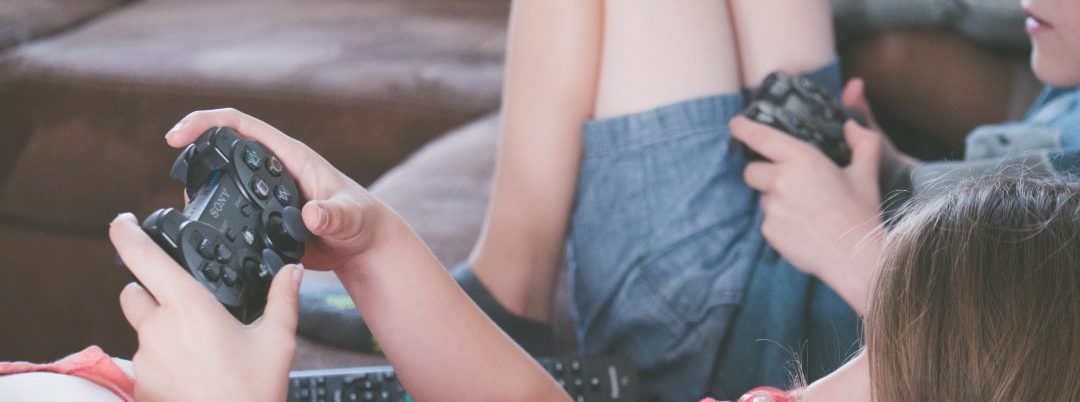
- The World Health Organization (WHO) now classifies gaming disorder as a diagnosable mental health condition.
- There are specific criteria that must be met in order for one to be diagnosed with the disorder.
- While parents are increasingly concerned about their kids’ gaming activity, kids have not been identified as being at a greater risk for the illness.
- We all need to beware of the harmful effects of gaming and take the necessary actions to care for our mental health and wellbeing.
As you’ve probably heard by now, the World Health Organization (WHO) recently released the 11th edition of its International Classification of Diseases (ICD), which includes a new diagnosable mental health condition: gaming disorder. This news was met with varying reactions, some positive and some, of course, negative. Big gamers and those who work in the gaming industry are among those who responded with rage, while doctors said they’re optimistic, and parents expressed concern.
This is still relatively recent news, which means the conversation is just getting started… and there are a lot of important questions still to explore. Perhaps, for example: What exactly is gaming disorder? Who is at risk of being diagnosed with gaming disorder? And what should we all do to take care of our mental health while gaming?
What Exactly Is Gaming Disorder?
First thing’s first: what is gaming disorder? As with any other disorder, you have to meet specific criteria before you’re diagnosed. According to the WHO, gaming disorder is “a pattern of gaming behavior (‘digital gaming’ or ‘video-gaming’) characterized by impaired control over gaming, increasing priority given to gaming over other activities to the extent that gaming takes precedence over other interests and daily activities, and continuation or escalation of gaming despite the occurrence of negative consequences.” Additionally, this behavior pattern must be severe enough to significantly damage other important areas of functioning and occur for at least 12 months.
This should provide some degree of relief to the majority of you worried about a friend or relative or even yourself. It’s okay to game every now and then, even for a good part of the day, as long as your love for gaming doesn’t take over your life. I know, that’s a vague statement—if you’re still concerned, take a look at these red flags to see if it’s worth the worry:
- They aren’t performing well at work or school due to excessive or late-night gaming.
- The individual stops engaging in other hobbies he or she used to thoroughly enjoy because they spend that time gaming.
- The individual is negatively affected one way or another by their gaming habits, yet they don’t take any action to address or reverse these effects.
- They consistently turn down or cancel plans with friends/family to play video games instead.
Who’s At Risk of Developing Gaming Disorder?
The WHO released a statement saying only a small percentage of gamers are affected by gaming disorder. Still, it’s important for all gamers to be and stay aware of their video game habits, specifically how much time they spend gaming. As mentioned in the above criteria, if it starts to take precedence over other daily activities or impair functioning, that’s when gaming becomes a problem.
That being said, there is a particular group of individuals that might come to mind or raise brows when it comes to talk about this disorder: kids. Today’s kids grew up with advanced technology, including a wide range of gaming consoles from Gameboys to PlayStations, Xbox’s, and Wiis. And now, many of them also use phones, computers, and iPads to play popular games such as Fortnite Battle Royale, League of Legends, and (you’re probably at least familiar with this one) Candy Crush.
So, does that mean kids are at a heightened risk of being affected by this new disorder? Not quite. While news of this gaming disorder may increase concern amongst parents, kids are not necessarily at a greater risk of being affected than others; however, they do make up a significant percentage of the gaming population, which is why so many feel inclined to think and worry about the younger generations. In sum, kids need to understand the potential risks and beware of the same harmful habits outlined above, just like the rest of us.
How Can We Take Care of Ourselves While Gaming?
Clearly, our mental health and overall wellbeing are at risk if we let video games get the best of us—therefore, it’s important we take actions to ensure we stay happy and healthy whilst gaming. If you think that your gaming habits have already gotten out of control and that you might be at risk of suffering from gaming disorder now or in the future, you might need additional intervention, starting with a psychologist’s evaluation. Otherwise, follow these simple tips for taking care of yourself while playing video games:
- Monitor and limit how much time you spend gaming.
- Only play games that evoke positive emotions.
- Keep your cool, and know that it’s time to step away if you can’t.
- Put your friends, family, and work first.
- Remember: it’s just a game.
Let’s keep in touch! Sign up to receive our newsletter:
Start a Relationship with An Exceptional Counselor
- Skilled and caring professional counselors
- Accepting all major and most insurances
- High-touch customer service & premium benefits
- Same- or next-day appointments
- Ultra-flexible 23.5hr cancellations













